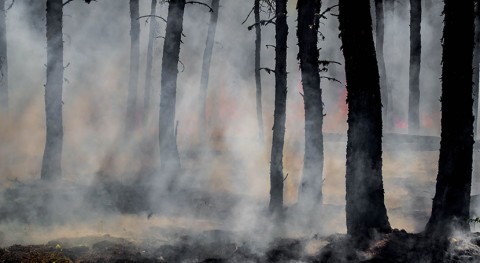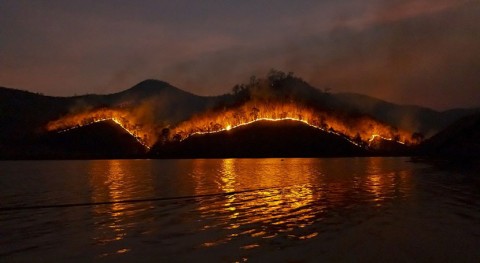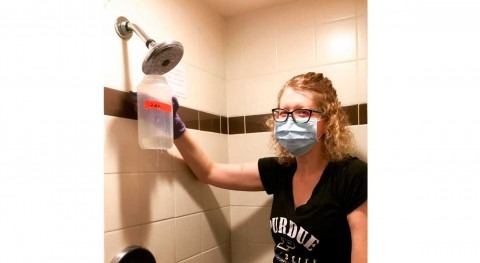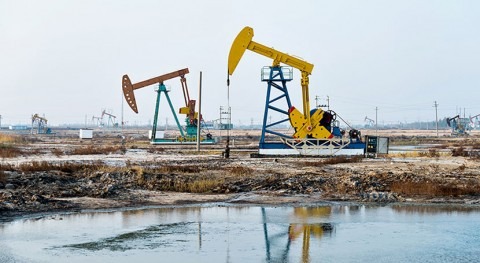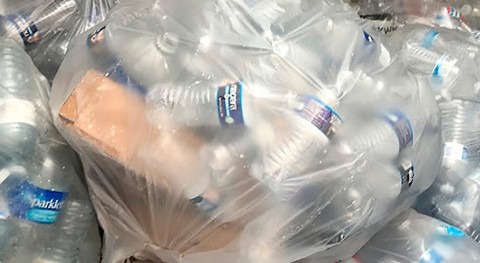Housing some of the most diverse ecosystems on the planet, Peru produces a variety of crops, spanning from maize and quinoa to avocados, grapes, coffee and cocoa. But water is scarce in the Arequipa region of Peru, where farmers rely on irrigation to branch out into lowland desert areas, increasing competition for the area’s dwindling supply of clean water resources.
“There are social, environmental and economic costs to taking water from one region and sending it to another,” said Tim Filley, a professor of geochemistry and soil science at Purdue University. “You’re disrupting the entire fabric of a region in terms of how they have been doing agriculture for millennia.”
Similar environmental issues are occurring across Peru and South America, where mining and farming fuel the economy with unseen, and sometimes ignored, consequences. These countries, however, often lack the research capacity and technological capabilities to address the totality of challenges complicating food, water and energy production on the continent.
Purdue is partnering with several public university systems in Peru to research how physical and social sciences could be integrated to help find solutions to the country’s environmental challenges. The collaboration could serve as a model to other developing economies in South America facing similar hardships from climate change, diminishing resources and environmental degradation.
One of the largest collaborative international projects in Purdue’s history, the Arequipa Nexus Institute for Food, Water, Energy, and the Environment, located at the Universidad Nacional de San Augustín (UNSA), is the first of several of cooperative agreements with Peruvian universities. Another is the recently established Institute for Human and Ecosystem Health Sustainability at the Universidad Nacional del Centro del Peru in the Junin region of the country.
“We are working together to establish institute-level infrastructure that would help create research, innovation and commercialization ecosystems on their campuses” said Filley, who co-directs the Nexus Institute with Henry Gustavo Cornejo Polanco, his counterpart at UNSA. Filley also is lead of the overall Peru initiative in Purdue’s Discovery Park.

Housing some of the most diverse ecosystems on the planet, Peru produces a variety of crops, spanning from maize and quinoa to avocados, grapes, coffee and cocoa. But water is scarce in the Arequipa region of Peru, where farmers rely on irrigation to branch out into lowland desert areas, increasing competition for the area’s dwindling supply of clean water resources. (Photo/Tim Filley)
“The programs are designed to develop solutions that are future adaptative, incorporate local know-how and talent, and are responsive to the region’s complex needs and social norms,” he added.
In the last year, the Nexus Institute has gone from being a newly launched project with high potential and aspirations to an active interdisciplinary institute that has successfully enabled more than 100 faculty from Purdue and UNSA to begin important work that builds both research capacity and strong working relationships. More than 60 Purdue faculty members across seven colleges, as well as Purdue Libraries, are conducting fundamental research in the sustainable and equitable utilization of natural resources to create transformative solutions in Peru.
“What Filley and the team have created is a different way of doing business. It’s a new kind of collaboration that enables cross-cultural, interdisciplinary interactions in search of critical solutions to local and national objectives,” said Theresa Mayer, executive vice president for research and partnerships. “It is a very well-organized program that is funded and supported well.”
Project topics vary broadly across the interconnected Nexus themes of food, water, energy and the environment, including developing a decision-making framework for sustainable water management; identifying and mapping soil impairments and improving soil health; strengthening Arequipa’s grape and wine industry through advancements in sustainable agriculture; designing net-zero energy buildings; creating robotic water quality monitoring and distribution systems; and defining innovative social science tools to identify points of conflict over natural resources and their possible solutions.
The projects are being funded by Peru’s mining canon, a portion of which is required by law to be allocated to public universities for research and technical infrastructure in the region where mining occurs.
“Our goal is to have data-driven, collaborative science, technology and innovation inform decision making from the household to regional scales,” Filley said. “How do we work together to sustainably produce and distribute food, energy and water in global regions with significant natural resource, hazard and climate limitations? The ultimate societal impact of something like this is huge.”
Promising projects could be supported and scaled by the proposed Purdue Latin America Network (PLANET), which would establish best practices, as well as provide expert advice and guidance, on creating similar multilateral partnerships across the continent.
“It’s the essential next step to demonstrate Purdue’s leadership and impact across all of Latin America,” Filley said. “It would aggregate all our activities into a working group on campus and with our partners in Latin America to focus on trans-border sustainability problems related to climate change, environmental quality, air quality and illegal mining – things that really don’t care about politics and drift across borders.”





